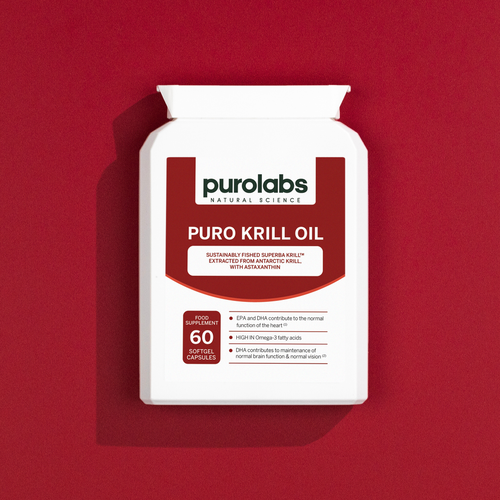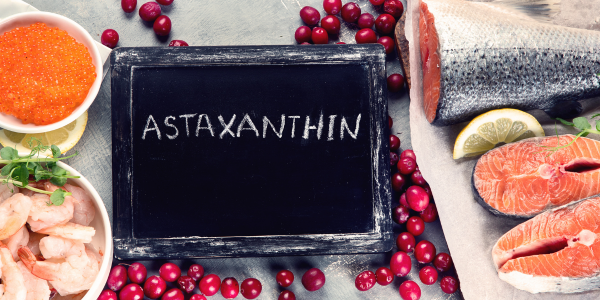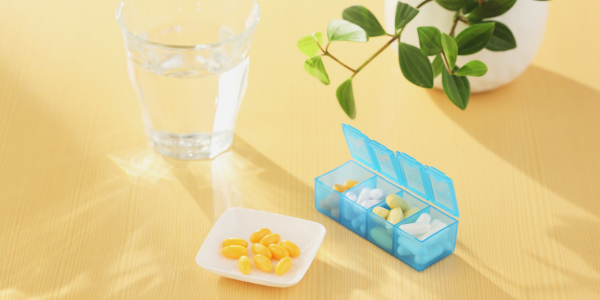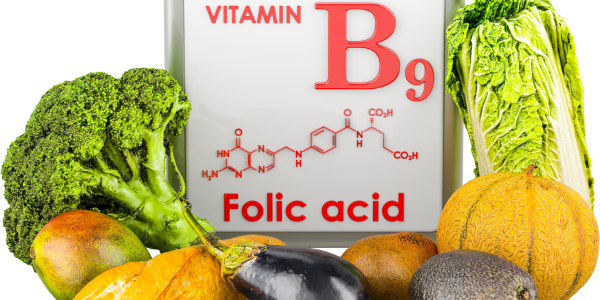Antioxidants are the cornerstone of good health and are an ever-so popular commodity when it comes to all aspects of health.
You’ll find them in supplements, health powders, skincare and cosmetics. Astaxanthin is no exception when it comes to the sheer breadth of health-giving benefits this potent antioxidant has on the body.
Antioxidants play vital roles in helping to support our gut, skin, hair, longevity, heart health, eye health, hormone function, energy, you name it.
Not a single system in the human body functions optimally without the help of antioxidants.
They help to mop up free radical damage caused by living, breathing and modern of way of life. They protect us from the chemicals we ingest and what we take in from the environment around us.
We love antioxidants. Antioxidants for everyone!
So, what is Astaxanthin?
Astaxanthin belongs to a group of antioxidants called carotenoids, which are yellow, orange and red in colour and found in produce, sea life algae and photosynthetic bacteria1.
Astaxanthin is a red-pigmented antioxidant, found in the ocean and derived from algae. In fact, shrimp, krill and salmon obtain their reddish pigment from their astaxanthin-rich diets, by eating plenty of algae.
The antioxidant plays a vital role in the energy and vitality of these fish, and consequently makes them an antioxidant-rich food source for us.
So how did astaxanthin find its way from marine life to becoming a much-researched staple in many human diets?
In 1938, Richard Kuhn built a laboratory on the banks of the Neckar River in Germany. He discovered and isolated the potent antioxidant from lobster.
We have been consuming astaxanthin-rich sea life for thousands of years. However, since Kuhn’s discovery, the antioxidant has been one of the earliest carotenoids to be tested through clinical research for human consumption. Kuhn even created supplemental forms of astaxanthin in the coming years which paved the way for modern carotenoid supplements today2.
What makes astaxanthin different from other antioxidants is how much it supports our cell membrane integrity. Our cell membranes are the layer that surrounds and protects every single cell in the human body. This layer allows for the transport of materials to enter and exit the cell to help with its function.
Whilst most antioxidants work on the inner or outer part of the cell, astaxanthin works on the lipid bilayer of the cell membrane helping to scavenge free radicals from both the inner and outer layers of the cell membrane. Powerful stuff!
This benefit plays to and supports the many wonderful benefits of this powerhouse of an antioxidant. Don’t underestimate astaxanthin. If you’re undecided about whether you should include the antioxidant in your supplement tool kit, read on to discover why it might just be a great idea…
A Skin Saviour
When it comes to antioxidants for skin health, astaxanthin should be at the top of your list.
Studies have shown that this potent antioxidant may:
- Reduce inflammatory oxidative stress within skin cells3
- Protect against dry skin and other signs of early skin ageing4
- Reduce wrinkle formation and suppressing hyperpigmentation5
- Potentially help protect against skin cancer6
Due to its photoprotective and oxidative damage reducing effects on the skin, some people even tout it as a replacement for sunscreen (although I’m certainly not endorsing that, we need far more research!). However, it is an intriguing antioxidant and one of my personal favourites. Yes, I have a favourite antioxidant…
Protects Eye Health
The human eyes and all the bodily mechanisms that support them are complex. Our eyes are a complex organs made of multiple tissues, layers and physical structures that compromise the eyeball and socket.
By the time we reach middle age, our eyes have spent over a billion seconds taking in UV rays from sunlight, pollution, blue light from devices, allergens, the list goes on. This dramatically increases the eyes' demands for anti-inflammatory antioxidants to help support their functioning and long-term health.
Exciting research has unearthed a potential benefit from long-term astaxanthin supplementation and eye health. Studies have linked this antioxidant to a reduction in diseases including AMD, glaucoma and cataracts7.
Boosts Brain Function
It is thought that astaxanthin helps boost brain health by its impact on lowering oxidative stress, which has been shown to promote neurodegeneration, cognitive decline and impact long-term cognitive ability8.
A recent systematic review even supported regular intake of astaxanthin supplementation as a preventative measure for dementia, potentially helping to reduce the gradual cognitive decline of this condition9.
Longevity
Astaxanthin has been shown to increase F0X03, known as the ‘longevity gene’ which is most commonly activated under stress i.e. exercise. A mice study found that astaxanthin supplementation boosted FOXO3 production by up to a staggering 90%! Human clinical trials are needed to identify whether astaxanthin could potentially have the same effect on longevity in humans10.
A review on clinical data linking astaxanthin to longevity found that there is a solid basis to support the antioxidant's benefits as a potential geroprotector, slowing down the rate of physical ageing and boosting longevity11.
Increases Physical Performance
There has been research to support astaxanthin’s role in sports performance. Carnitine Palmitoyl transferase I (CPT1) is an important enzyme which is part of every cell membrane, shifts fat into the mitochondria (the energy producing component of our cells), helping us to better utilise fats as a source of energy when exercising12.
It has even been hypothesised that long-term use of astaxanthin supplementation may lead to our cells shifting their preferred energy source from carbohydrates to fats, which could lead to improved fat loss. The research is limited, with further studies needed to support the theory, however, it is an exciting prospect!
May Support Male Fertility
An interesting study13 unearthed potentially positive benefits for the antioxidant on male fertility. It is known that antioxidants generally do help support sperm health 14, however the double-blind study looked into astaxanthin supplementation and male fertility.
It found that regular supplementation improved sperm count and motility in the subjects, with more research needed to verify the claims.
Word of Caution
Astaxanthin is generally considered safe for daily intake through supplements or food. However, as with almost anything, do check with your GP before taking supplemental form if you experience any of the below:

Antarctic Krill Oil
- Taking medications which thin the blood as astaxanthin is a natural blood thinner
- Taking medications that reduce blood pressure or affect cholesterol levels
- Experiencing loose stools as it may increase bowel frequency
If you are unsure, do check with a registered health practitioner or your GP to ensure that astaxanthin is a safe choice for you.





















